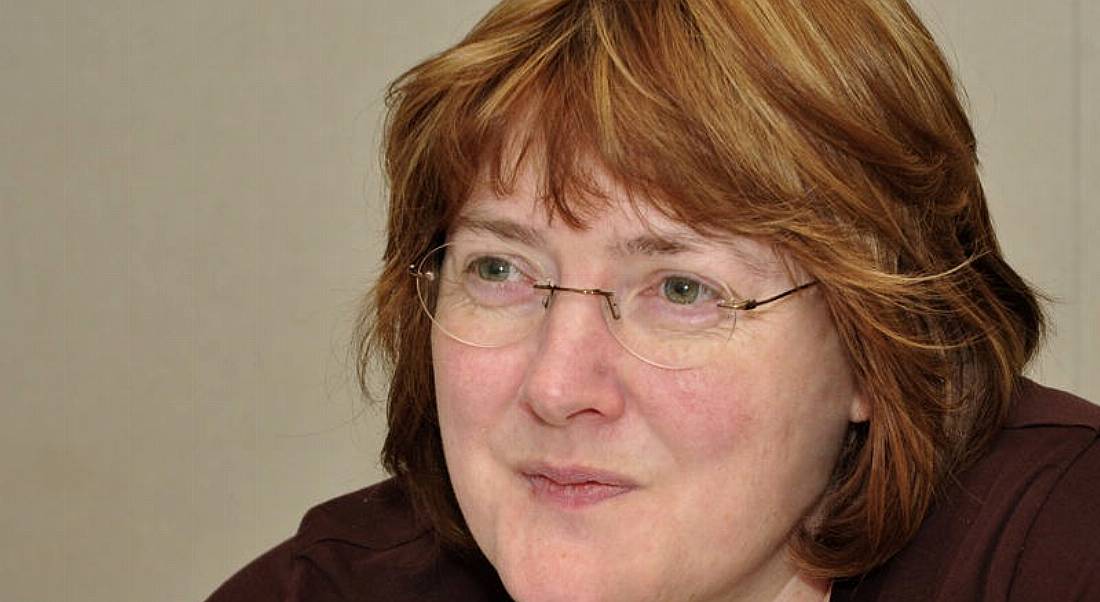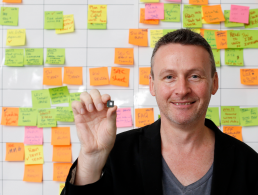Picture the scene: it is the mid-1980s at University College Cork (UCC) and a lecture hall fills with engineering students. Initially, nothing looks out of the ordinary except for the rather glaring fact that of the 55 students in the room, only five are female. One of those five young women was Ann Kelleher, who two years ago became the first Irish woman to be appointed vice-president at chip giant Intel.
At the time of the appointment, Kelleher had been managing a chip plant called Fab 11X in New Mexico, leading a workforce of 3,500 people. Prior to that, she had been the factory manager of Fab 24 in Leixlip, Co Kildare, where Intel employs more than 4,000 people in producing next-generation chips to sate the world’s appetite for computing power.
Today, Kelleher is vice-president of Intel’s Technology and Manufacturing Group and co-general manager of Fab Sort Manufacturing, where she is responsible for seven Intel plants in Ireland, the US, China and Israel. Those plants employ more than 13,500 people.
Kelleher lives in New Mexico but spends most of her time in the air, shuttling between the various Intel manufacturing plants.
The Macroom, Co Cork, native graduated from UCC in 1987 with a bachelor’s degree in electrical engineering and she completed a master’s degree in 1989. In 1993, she became the first ever female to receive a PhD from the NMRC (now the Tyndall Institute) at UCC.
Kelleher said she had always been interested in science and maths during her school days. After a careers adviser recognised Kelleher wanted to do something different with her talents, Kelleher chose electrical engineering.
Being one of just five girls in a class of 55 didn’t daunt Kelleher. Everybody was treated equally, she said.
“The main thing was getting through the classes and doing well. None of the girls wanted to be the last in the class so we all did very well,” Kelleher said.
After completing her PhD, Kelleher worked as a research scientist at IMEC (Interuniversity Microelectronics Centre) in Belgium for a couple of years before returning to work at the NMRC in Cork. In spearheading research in semi-conductors at the NMRC, one of Kelleher’s jobs was to apply for funding. One of the questions she constantly received was, did she have any industry experience?
“So when someone suggested I apply for a job at Intel I decided it would tick that box.”
Kelleher joins Intel
Kelleher joined Intel in Leixlip in 1996 as a process engineer. It was an interesting time. The company’s Irish plants had begun operations only several years earlier from a former used-car showroom in Dublin. Intel was transitioning from Fab 10 to Fab 14 at the then-sprawling Leixlip site. At around the same time, Ireland’s economy was about to go into hyper drive.
Despite Ireland’s subsequent economic boom and bust, the technology industry is still thriving and, the way Kelleher sees it, electronics manufacturing and the IT industry are vital to the country’s future.
“It has been integral in terms of Ireland changing from not only an economic perspective but from a thought perspective and becoming much more international,” Kelleher said.
Manufacturing overall is crucial, she said.
“It has in the past helped with growth but it needs to remain into the future.”
It is very much Intel’s role in Ireland’s future that is of interest right now. Since 1989, Intel has invested €6bn in Leixlip. In 2011, Intel embarked on a US$500m construction project that would result in 850 construction jobs and 200 technology jobs.
First Irish female VP at Intel
Kelleher said she took being made the first Irish female vice-president at Intel in her stride. The appointment meant more to her family and her colleagues than it did to her, she said.
Job titles don’t mean much to Kelleher. “No person is an island; it’s everybody’s success when you are helped there along the way and for that I was very grateful,” she said.
Kelleher shares responsibility for Intel’s manufacturing facilities around the world with Steve Megli, her co-general manager. They manage around 13,500 people and a lot of Kelleher’s daily business involves travelling to individual sites in China, Israel, Ireland, New Mexico, Arizona, Hudson and Portland.
“A lot of my time is spent planning for the future, planning what the business needs of our group will be for the future, looking at things from an efficiency perspective and how on a day-to-day basis we can build on our strength of knowledge that tomorrow will be better. Even though we have excellent manufacturing processes today, you can never stop improving it,” Kelleher said.
For Intel, which on 16 April reported first-quarter revenues of US$12.6bn, preparing for the future is essential. The very idea of computing is shifting from the personal computers on desks at work to portable smartphones and tablets, all of which drink down their knowledge from an intricate tapestry of data centres, known as the cloud. It is Intel’s intention to have its chips in every device along the way, from the smartphones to the tablets and the servers in the data centres.
“If you look at our road map over the next 10 years it is absolutely full of options in terms of staying with Moore’s Law. We are currently running at 22nm technology and 14nm is on track to arrive at the end of 2013. We are absolutely on track and we have a full pipeline of innovation on the way.”
It is a source of pride to Kelleher that her alma mater, the Tyndall Institute, along with Trinity College’s CRANN Institute, are providing a necessary pipeline of skills and expertise to Intel.
Kelleher said the fundamental research, whether directly or indirectly linked with Intel, is moving the knowledge and technology of semi-conductors and nanotechnology on.
“Ireland is helping to move the world of semi-conductors forward and one of the biggest benefits is the people it provides companies like Intel. They are good to go from the moment they come in the door and are able to contribute,” she said.
From her vantage point in New Mexico and elsewhere in the world, Kelleher said Ireland’s role in the global technology industry is well-regarded.
“One of the key attractions has to be its workforce. It is one thing to have a competitive environment but what is really needed is a workforce that is skilled, well educated and able to get work done and has strong managers and leaders. Ireland ticks those boxes.”
Women in tech leadership roles
Kelleher is well aware that more women need to take leadership positions in the Irish technology industry. Thinking back to her 16-year-old self weighing up career options when the prevailing wisdom was to choose teaching, nursing or hairdressing, she urges teenage girls and their parents to at the very least cover the bases.
“If you start with a basic set of maths and science skills it sets you up with a broad base of choices if you want to work in the dynamic growth industries of tomorrow. It doesn’t matter what part of the industry you work in, whether it is electronics, software or pharmaceuticals.”
Starting with a strong, basic set of maths and science sets a student up for success in any one of these industries, she said.
“It is not always clear to the 16-year-old what opportunities exist,” Kelleher said. “It wasn’t clear to me.”
There are much more opportunities, Kelleher said, and her advice to any 16-year-old is to find out what’s going on in these industries that grab their interest.
“In our industry not every job is the same – but every job stems from the same basic knowledge of maths and science. You don’t have to follow one narrow field, there are a myriad of opportunities in terms of career growth.”
Returning to the subject of leadership in business – a subject highlighted by Sheryl Sandberg, Facebook COO and author of Lean In: Women, Work and the Will to Lead – Kelleher said that often women tend to put psychological roadblocks in front of themselves and maybe don’t always see opportunities.
“The key is realising that the roadblocks may not be real and helping women to realise that opportunities are available for everyone,” Kelleher said.
“Sometimes I think women in our industry tend to stand back and say ‘sure, I wouldn’t get the job anyway’ rather than thinking ‘you know what, I may actually be the best person for this job.’
“I think women, particularly in the technology industry, need to be more positive in terms of putting their hats in the ring and just going for it.” Clearly Kelleher has proven her own thesis.
A version of this article appeared in the Sunday Times on 28 April
Women Invent Tomorrow is Silicon Republic’s year-long campaign to champion the role of women in science, technology, engineering and maths




